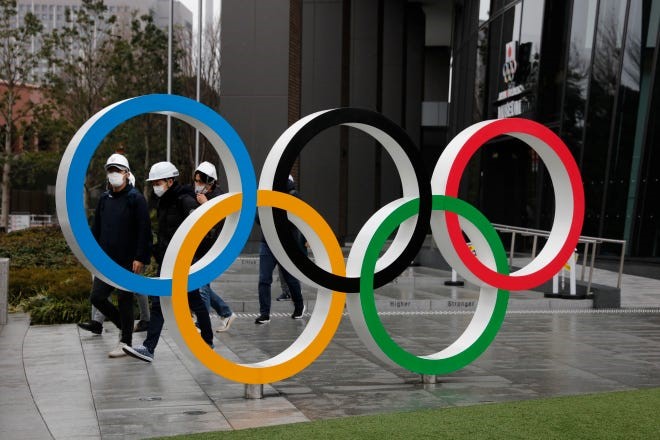CoronaVirus Updates
2020 Tokyo Olympics officially postponed due to Coronavirus

In an unprecedented and unavoidable move, Japanese Prime Minister Shinzo Abe told reporters in Tokyo that he and International Olympic Committee president Thomas Bach have agreed to postpone the 2020 Summer Olympics.
According to a tweet from the Japanese Prime Minister’s Office, the two agreed that the Games will not be cancelled and “will be held by the summer of 2021.”
It is the first time in modern Olympic history that a global health issue has disrupted the Games.
The announcement followed telephone conversations between Abe, Bach and their respective teams Tuesday.
While the Olympic Games have previously been cancelled during periods of war, and complicated by boycotts, this is the first time they have ever been suspended.
The decision to move the multi-billion dollar event will have widespread political, legal, logistical and financial ramifications, both locally in Japan and around the world.
It also figures to cause headaches and heartaches across the international sports community — for federations and leagues that must now adapt their schedules, and for the 11,000 athletes who had spent years training to compete this summer.
Despite its complexities, this path became increasingly inevitable in recent weeks, as the novel coronavirus, also known as COVID-19, continued to spread. The disease, which was first identified in Wuhan, China in December, has now infected people in more than 160 countries around the world, shuttering entire cities and leaving thousands dead.
READ: Coronavirus downs National Sports Festival, Edo 2020 postponed
In the process, it also wreaked havoc on the Olympic qualifying model, forcing several international sports federations and national Olympic committees to postpone or cancel key events. Some athletes and coaches were stranded in foreign countries due to travel restrictions. Training regimens were disrupted. The Greek leg of the Olympic torch relay was held without fans, then cancelled.
Yet despite those disruptions, and the rapid spread of the coronavirus, IOC officials and representatives from the Tokyo 2020 organizing committee maintained for months that the Olympics would not be affected. IOC president Thomas Bach urged athletes to continue training as usual, even as questions about the Games continued to swirl.
That determined approach changed as the opening ceremony drew closer and global health concerns about holding the event lingered.
Athletes helped fuel the process by speaking out publicly, or pressuring their sport’s governing body or national Olympic committee to take a stand. In the United States, for example, leaders from swimming, track and field and gymnastics all urged the U.S. Olympic and Paralympic Committee to publicly call for postponement, which it later did.
Canada had announced it would not send its team to the Olympics and Paralympics in the summer of 2020, owing to the coronavirus pandemic.
The Australian Olympic Committee (AOC) said on Monday it could not assemble a team for the 2020 Tokyo Olympics due to the coronavirus outbreak and that its athletes should prepare for the Games to be postponed to 2021.
